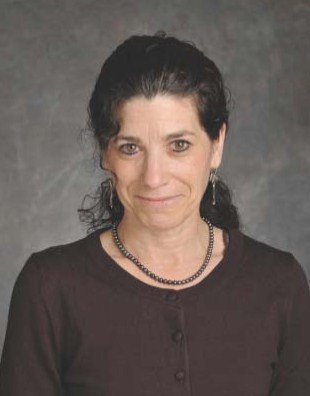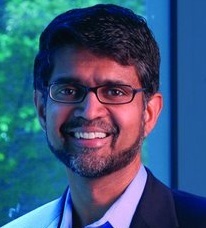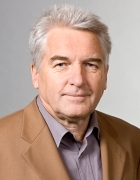CPSWeek plenary speakers

|
April 9, Tuesday
Deborah Estrin Professor of Computer Science, Cornell Tech, NYC, USA Title: Sensemaking for Mobile Health Abstract: Mobile health (mHealth) leverages the power and ubiquity of mobile and cloud technologies to support patients and clinicians in monitoring and understanding symptoms, side effects and treatment outside the clinical setting; thereby closing the feedback loops of self-care, clinical-care, and personal-evidence-creation. However, to realize this promise, we must develop new data capture, processing and modeling techniques to convert the digital exhaust emitted by mobile phone use into behavioral biomarkers. This calls for a modular layered sensemaking framework in which low level state classifications of raw data (e.g., estimated activity states such as sitting, walking, driving from continuous accelerometer and location traces), are used to derive mid-level semantic features (e.g., total number of ambulatory minutes, number of hours spent out of house), that can then be mapped to particular behavioral biomarkers for specific diseases (e.g., chronic pain, GI disfunction, MS, fatigue, depression, etc). The techniques needed to derive these markers will range from simple functions to machine learning classifiers, and will need to fuse diverse data types, but all will need to cope with noisy, erratic data sources. We are working to build an open architecture and community to speed the rate and robustness of innovation in this space, both academic and commercial (http://openmhealth.org). Biography: Deborah Estrin is a Professor of Computer Science at the new Cornell Tech campus in New York City and a Professor of Public Health at Weill Cornell Medical College. She is co-founder of the non-profit startup, Open mHealth. She was previously on faculty at UCLA and Founding Director of the NSF Center for Embedded Networked Sensing (CENS). Estrin is a pioneer in networked sensing, which uses mobile and wireless systems to collect and analyze real time data about the physical world and the people who occupy it. Estrin s current focus is on mobile health (mhealth), leveraging the programmability, proximity, and pervasiveness of mobile devices and the cloud for health management. She is an elected member of the American Academy of Arts and Sciences and the National Academy of Engineering. |

|
April 10, Wednesday
Vijay Kumar UPS Foundation Professor, University of Pennsylvania, USA Title: Aerial Robot Swarms Abstract: Autonomous micro aerial robots can operate in three-dimensional unstructured environments, and offer many opportunities for environmental monitoring, search and rescue, and first response. I will describe the challenges in developing small, agile robots and our recent work in addressing these challenges. I will also discuss the deployment of large numbers of aerial robots, focusing on the control and planning problems with applications to cooperative manipulation and transport, construction, and exploration and mapping. Biography: Vijay Kumar is the UPS Foundation Professor in the School of Engineering and Applied Science at the University of Pennsylvania, and on sabbatical leave at White House Office of Science and Technology Policy where he serves as the assistant director for robotics and cyber physical systems. He received his Ph.D. in Mechanical Engineering from The Ohio State University in 1987. He has been on the Faculty in the Department of Mechanical Engineering and Applied Mechanics with a secondary appointment in the Department of Computer and Information Science at the University of Pennsylvania since 1987. Dr. Kumar is a Fellow of the American Society of Mechanical Engineers (ASME) and the Institution of Electrical and Electronic Engineers (IEEE). He presently serves on the editorial boards of the IEEE Transactions on Automation Science and Engineering, the ASME Journal of Mechanisms and Robotics and the Springer Stracts in Advanced Robotics (STAR). He is the recipient of the National Science Foundation Presidential Young Investigator award (1991), the Lindback Award for Distinguished Teaching (1996), and best paper awards at DARS 2002, ICRA 2004, ICRA 2008, ICRA 2011, RSS 2009, DARS 2010 and RSS 2011. Most recently he was named the winner of a 2012 IEEE Robotics and Automation Society Distinguished Service Award, the 2012 ASME Mechanisms and Robotics Committee Award, and a 2012 World Technology Network Award. |

|
April 11, Thursday
Manfred Broy Chair of Software and Systems Engineering, Technical University of Munich, Germany Title: Challenges in Modeling Cyber-Physical Systems Abstract: Cyber-Physical Systems require more advanced modeling techniques to capture physicality including time and space, reliability in terms of probabilistic models, connectivity in terms of communication links, adaptivity, context awareness, interoperability, and autonomy. This requires a comprehensive integrated modeling framework for specification, modeling of architecture, and tracing their relationships. Biography: Manfred Broy is a full professor for Informatics at the Technische Universitat Munchen. His research interests are software and systems engineering comprising both theoretical and practical aspects. His current research interests are: System Development Processes and Tool Support, System Modelling, Requirements Engineering, Concurrent and Embedded Systems, Theoretical Foundation of Informatics, Quality, and Requirements Engineering, Systems Engineering, Cyber-Physical Systems. |
